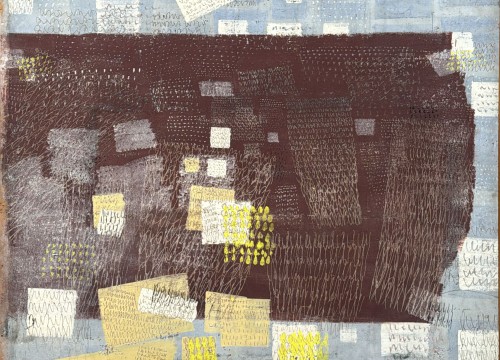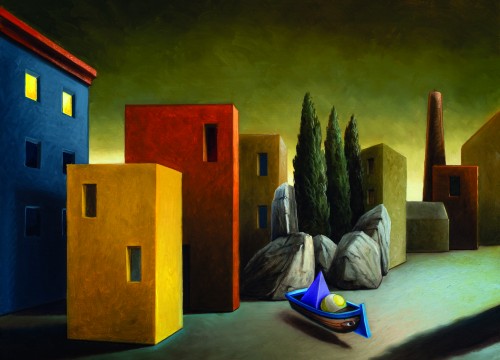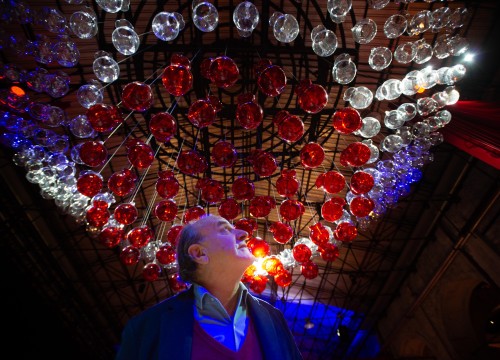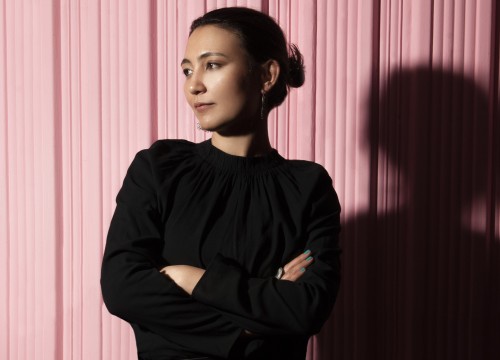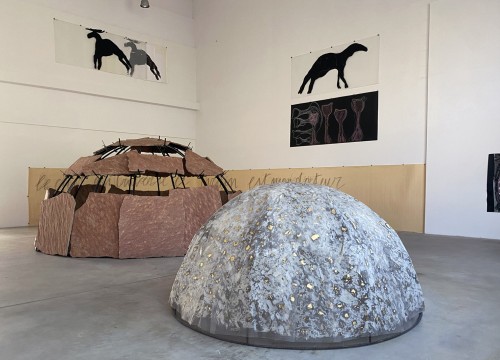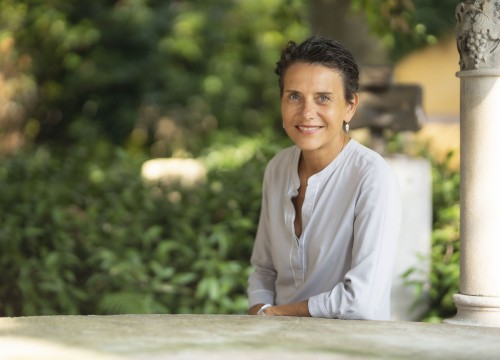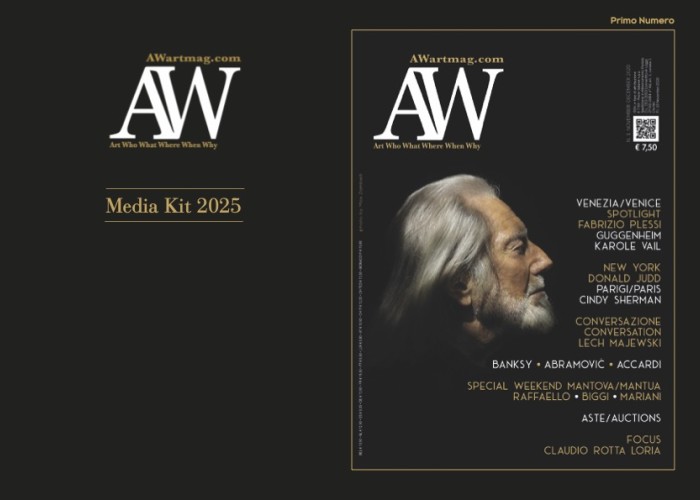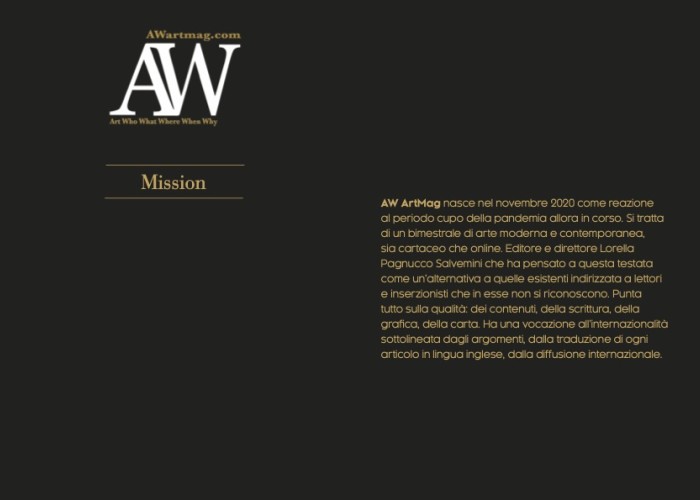“I was born on the 21st in spring / but I did not know that being born insane / opening the clumps could unleash a storm” (“Sono nata il 21 a primavera / ma non sapevo che nascere folle,/ aprire le zolle /potesse scatenare tempesta”). And Alda Merini’s life was certainly as stormy as her words - of flame, of light, of violence and pain. She died at the age of 78, “on the 1st on All Saints’ Day”, we could say paraphrasing her famous hendecasyllable. Coherent and prophetic, even in her appointment with afterlife. She brought it forward by one day, because, perhaps, dying on All Souls’ Day would have made her feel as though she died twice, or forever. She chose well: November 1 tastes of beatification. Saint, now. And so it was. Not that she would have been interested in posthumous glory - cheesy pre-obits, solemn funerals, being buried in Famedio, side by side with Milan’s great names. She, who hushed everyone who dared speak of a Nobel prize, saying: “Let them send me prizes, a million euros can’t buy you love or attention... They forget about you even when they are remembering you”. She, who was extremely poor (because she lived only on the pension that was provided for by the Bertelli Law) and used the 36 millions of liras of the Montale-Guggenheim prize to pay herself a room at Hotel Certosa, where she lived until she finished money. Money seemed to scorch her hands, so she shared that sudden manna with every homeless person she met on the street. She even took one of them at her home, Titano was his name. He lived with her for five years. And it was love - the desperate, heart-breaking, bitter and shiny need for love of an old woman who had been insane but was healed by poetry. And let there be poetry, then. As when, at the beginning of that passion, “a useless caress was enough / to turn the world upside down” (“bastava una inutile carezza / a capovolgere il mondo”), and she sensed “a sort of priesthood in her soul” (“una sorta di sacerdozio nella sua anima”). Then, fatal and terrible like a divine curse, all the torment, the anguish, the helplessness for another, last fire that was about to go out, until “at some point / one cursed the other / with one another / we cursed life” (“a un certo punto / uno bestemmiava l’altro / uno con l’altro / bestemmiavamo la vita”). That same life that defrauded, vilified, and pardoned both of them, “but only on one condition: / the condition of jail” (“ma soltanto a una condizione: / la condizione della galera”).
And we know that Merini already knew prison - the worst ever - when she was sectioned and spent twenty years in a terrible mental institution, where she endured 37 electroshocks, and lost her house, daughters, eros, publications. Twenty years of torture, cruelty and silence. To deprive a poet of her verses is like killing her. But derailment from reason led her see beyond and further. In her eyes, insanity dwelled elsewhere. For instance, in the mind of the doctor who all nights put an IV in her arm to pacify her “impetuous blood of poet”. And, looking in the window at the frenzied rhythms of a Milan that is grown incapable of love, we would hear her say: “you are the insane, those who are shut out of the nuthouse” (“i pazzi siete voi, quelli chiusi fuori dal manicomio”). The truth that kills your smile, the stunning truth that surfaces on the
lips of fools. But that hell would end, too. And then “the moment to sing / a funeral song to the past” came (“il momento di cantare / una esequie al passato). She published “La Terra Santa” (“The Holy Land”), a collection of glowing, scorching, sulfurous voices from the abyss. A shouted subconscious that overwhelms and includes everything - courage, terror, brutality, dream, desire.
The Merini case exploded, as if she were a rising talent. She, who started writing poetry when she was 16 and published her first collection with Scheiwiller at 22. Lyric poems that captivated Giacinto Spagnoletti, Salvatore Macrì and Maria Corti for the unbiased way in which
they fuse religious, erotic, Christian and pagan impulses together. The “Milanese girl” was noticed by Pierpaolo Pasolini, Eugenio Montale, Maria Luisa Spaziani and, above all, Giorgio Manganelli, with his sensitivity of lunar writer. There was an immediate chemistry between them: intense, troubled, disturbing passion. She would know delirium, ecstasy, the madhouse. She had no doubts. “He was my first love, my great love”. As for him, “he was very timid, he dawdled and daydreamed for fear of love”.
So, she sometimes slapped him. Alda messed Milan literary scene up. She collected famous lovers. Even Salvatore Quasimodo, “a wise man, a vase of clay / and gold” (uomo sapiente, vaso di argilla / e d’oro), could not resist and dedicated some of his most intensely erotic verses to her. However, in 1953 she surprised everyone by getting married with a baker, Ettore Carniti, with whom she spent 28 years, until his death. Widowed in 1981, she was too in love with life and love to live alone. She was also too in love with art, so she started an unlikely cohabitation with a painter, Charles; two years later, however, she got married with Michele Pierri, a poet from Taranto. “Rime petrose”, “Poesie per Charles”, “Per Michele Pierri”: Merini knew it very well - she described herself as a praying mantis. Until the end, sometimes queen and sometimes beggar, covered in rags and eye-catching trinket and with vermilion lips, she was surrounded by young artists and supposed, dreamed and sometimes real, lovers. It was love that made her write, it was writing that kept her alive. And it continues doing that, even now that she is no longer with us.






